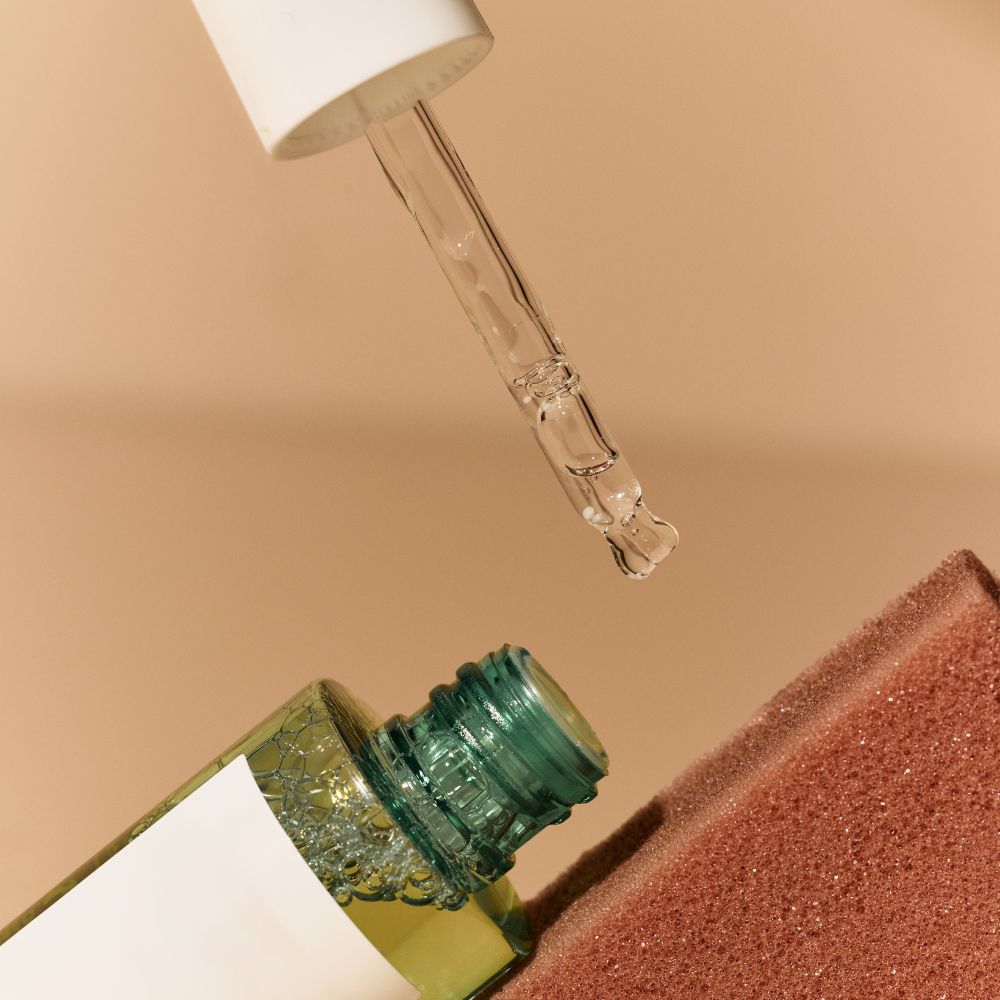
Menopause marks one of the most pivotal changes in the life of a woman and this ushers in a period of transition for the skin as well. From sudden hormonal breakouts to an overall sense of dryness due to plummeting levels of estrogen, it isn’t uncommon to be faced with skincare issues that you haven’t dealt with before. The good news, however, is that with a few key changes, you can stay one step ahead of skin changes after menopause. Here’s how:
What is menopause?
Menopause is a natural biological process that marks the end of a woman's reproductive years, explains Dr Harshna Bijlani, medical head of The AgeLess Clinic. “In technical terms, it is defined as the absence of menstrual periods for 12 consecutive months. Menopause typically occurs in the late 40s to early 50s, but the age at which it occurs can vary widely,” she adds.
Since the transition to menopause is a gradual process, a woman’s body goes through several stages from perimenopause—when the hormone levels, particularly estrogen and progesterone, undergo fluctuations—to menopause which brings about various physiological changes and signals the end of the menstrual cycle. Post-menopause which is characterised by a new hormonal baseline, with lower levels of estrogen and progesterone. “The postmenopausal stage represents a time of adaptation and proactive healthcare to promote overall well-being during this phase of a woman's life,” she says.

Understanding the effect of menopause on skin
According to Dr Bijlani, the hormonal changes associated with menopause can have notable effects on the skin in the following ways due to the decline in estrogen levels:
Dryness and loss of elasticity
Estrogen, a hormone that declines during menopause, plays a crucial role in maintaining collagen and elastin, which contribute to skin elasticity. The reduction in estrogen levels can lead to a decrease in collagen production, resulting in drier and less elastic skin. As a consequence, the skin may become thinner, making it more susceptible to the development of fine lines and wrinkles.
Decreased hydration
Hormonal changes associated with menopause can impact the skin's ability to retain moisture. This can manifest as increased dryness, and the characteristic plumpness associated with well-hydrated skin may diminish. As a result, women may need to focus on skincare products that prioritise hydration and use products designed to replenish and lock in moisture.
Wrinkles and fine lines
The decline in collagen and elastin, coupled with other environmental factors like sun exposure, contributes to the formation of wrinkles and fine lines. As the skin loses its supportive structures, particularly collagen, the signs of aging become more apparent. Sun protection and the use of anti-aging skincare products can help mitigate these effects.
Thinning of the skin
Estrogen’s role in maintaining skin thickness is significant, and as estrogen levels decrease, the skin may undergo thinning. This thinning makes the skin more vulnerable to damage, and individuals may notice increased sensitivity and a higher likelihood of bruising or injury.
Increased sensitivity
Menopause can bring about increased skin sensitivity for some women. Conditions such as rosacea may worsen, and individuals may experience heightened reactions to skincare products. Choosing gentle skincare formulations and avoiding potential irritants become crucial in managing skin sensitivity during this period.
Acne and breakouts
Hormonal fluctuations during perimenopause can lead to an increase in acne or breakouts, resembling patterns often observed during adolescence. The imbalances in hormones, particularly androgens, may influence sebum production and skin cell turnover. Managing acne during menopause may involve targeted skincare and, in some cases, consultation with a skin expert for tailored treatment approaches.
Cellulite
Menopause can be associated with changes in body composition and a decrease in collagen and elastin levels, contributing to the development of cellulite. Cellulite is characterised by the dimpled or lumpy appearance of skin, often on the thighs and buttocks. Hormonal fluctuations during menopause, coupled with genetic and lifestyle factors, may influence the development and severity of cellulite. Managing cellulite may involve a combination of lifestyle modifications, targeted skincare, and, in some cases, professional treatments to improve skin texture and tone.
Hair loss and thinning
Menopause can bring about changes in hair density and thickness as the decline in estrogen levels can contribute to hair loss and thinning. This condition, known as female pattern hair loss, can affect the scalp's overall volume and texture, necessitating specific haircare approaches and, in some cases, medical interventions. Addressing hormonal factors and adopting appropriate haircare practices become essential in managing these changes during menopause.
Skincare dos and don’ts to observe during menopause
To mitigate the impact of these changes on the skin, Dr Bijlani recommends adopting a tailored approach for skincare after menopause that focuses on hydration, sun protection and products containing ingredients like retinoids and antioxidants.
Dos:
- Prioritise hydration in your skincare routine. Use a moisturiser that is rich in hydrating ingredients like hyaluronic acid to combat dryness and maintain skin suppleness.
- Apply a broad-spectrum sunscreen with at least SPF 30 daily. Sun protection is crucial in preventing further damage and reducing the risk of hyperpigmentation and visible signs of aging.
- Choose a gentle, hydrating cleanser that helps maintain the skin's natural moisture barrier. Avoid harsh cleansers that may strip the skin of essential oils.
- Consider incorporating retinoids and antioxidants into your routine that can help stimulate collagen production along with antioxidants that protect the skin from environmental damage.
- Include gentle exfoliation in your routine to promote cell turnover and address dullness. Choose exfoliants with alpha hydroxy acids (AHAs) or beta hydroxy acids (BHAs) for smoother skin.
- Do consider supplements that support skin health from within. Omega-3 fatty acids, vitamin C, and oral collagen supplements help promote skin hydration and elasticity. It is advisable to consult with a skincare professional before incorporating new supplements.
- Nourish your skin with face and body oils containing rosehip, sea buckthorn and vitamin E for moisturising benefits. Remember to pay special attention to your hands for comprehensive skincare.
Don'ts:
- Do not use harsh products that may further strip the skin of its natural oils. This includes abrasive scrubs and cleansers with high alcohol content.
- Don’t skip sunscreen. Sun protection is crucial for preventing sun damage, which can accelerate the aging process and worsen existing skin concerns.
- Do not use excessively hot water when cleansing your face or showering. Hot water can contribute to dryness and exacerbate skin sensitivity.
- Don’t ignore the ingredient list of skincare products. Be mindful of potential irritants and allergens. Look for products with soothing ingredients like niacinamide or centella asiatica.
- Do not overlook hormonal acne. If you experience breakouts, consider consulting a skin expert for targeted treatments. Avoid picking or squeezing blemishes, as it can lead to scarring.
- Don’t neglect skincare for the neck and décolletage. These areas can show signs of aging, so extend your skincare routine to include these regions.
- Do not underestimate the impact of stress and unhealthy lifestyle habits on your skin. Managing stress, getting adequate sleep, and maintaining a healthy diet can positively influence your skin's appearance.
“At the end of the day, it helps to remember that everyone's skin is unique, so it's essential to tailor your skincare routine to your individual needs and concerns. Regularly reassess your skincare regimen to adapt to any changes in your skin during the menopausal period,” she concludes.
























